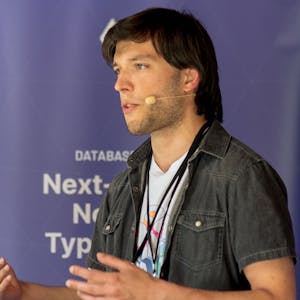160 min
Monorepos de Node con Nx
Top Content
WorkshopFree
Varias apis y varios equipos en el mismo repositorio pueden causar muchos dolores de cabeza, pero Nx te tiene cubierto. Aprende a compartir código, mantener archivos de configuración y coordinar cambios en un monorepo que puede escalar tanto como tu organización. Nx te permite dar estructura a un repositorio con cientos de colaboradores y elimina las desaceleraciones de CI que normalmente ocurren a medida que crece la base de código.
Índice de contenidos:- Laboratorio 1 - Generar un espacio de trabajo vacío- Laboratorio 2 - Generar una api de node- Laboratorio 3 - Ejecutores- Laboratorio 4 - Migraciones- Laboratorio 5 - Generar una biblioteca de autenticación- Laboratorio 6 - Generar una biblioteca de base de datos- Laboratorio 7 - Añadir un cli de node- Laboratorio 8 - Limites de módulo- Laboratorio 9 - Plugins y Generadores - Introducción- Laboratorio 10 - Plugins y Generadores - Modificación de archivos- Laboratorio 11 - Configuración de CI- Laboratorio 12 - Caché distribuida
Índice de contenidos:- Laboratorio 1 - Generar un espacio de trabajo vacío- Laboratorio 2 - Generar una api de node- Laboratorio 3 - Ejecutores- Laboratorio 4 - Migraciones- Laboratorio 5 - Generar una biblioteca de autenticación- Laboratorio 6 - Generar una biblioteca de base de datos- Laboratorio 7 - Añadir un cli de node- Laboratorio 8 - Limites de módulo- Laboratorio 9 - Plugins y Generadores - Introducción- Laboratorio 10 - Plugins y Generadores - Modificación de archivos- Laboratorio 11 - Configuración de CI- Laboratorio 12 - Caché distribuida














































